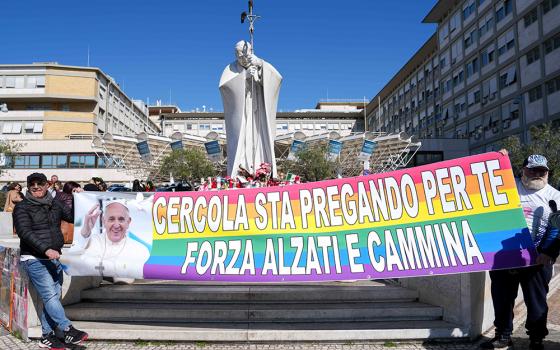
(Pixabay/Coffee)
For judgment will be without mercy to anyone who has shown no mercy; mercy triumphs over judgment.
—James 2:13
My mom could spot a phony from a mile away. My dad was quite the opposite, willing to give anyone almost forever before passing judgment.
When Dad's uncle and partner in a food distributing business died, Dad took a partner named Tom Miles. My mom took little time to declare Miles a consummate charlatan. "He's going to cheat us blind," she said.
Unfortunately, Mom turned out to be right. One Sunday, Miles decamped from Buffalo for points west with his wife and two young daughters — and the entire business bank account.
And Dad wouldn't mount a search or prosecute.
He said, "I don't want those two little girls growing up with their father a convict in prison."
Well, for a long time, I hated Dad for it. At 12, I had to take on a paper route. I had to get up at 5:30 every morning, including Sundays, but it paid well enough that I could buy my own clothes and pay the then-modest tuition at a Jesuit high school and two years of college. But I wore the same suitcoat to school for four years. We never took vacations and rarely even went to the beach. We were "poor." Because of Tom Miles. To whom my Dad showed mercy.
That didn't make sense. And yet it was the Christian ideal.
In Les Misérables, after a generous welcome in a bishop's home and a fine dinner, Jean Valjean escaped into the night with the bishop's silver. When the gendarmes caught him and brought him back, the bishop said, "Ah, mon ami! You forgot I gave you the silver candlesticks, too." And he left Jean standing at his door with a basket of silver in one hand and two silver candlesticks in the other.
Blessed are the merciful.
And damned are the tightfisted and vengeful.
Jesus could not have been more painfully clear, and Dad listened and believed: "You have heard that it was said, 'An eye for an eye and a tooth for a tooth.' But I say to you, do not resist an evildoer. If anyone strikes you on the right cheek, turn to him the other also."
Advertisement
I no longer skip over that hard saying. I'm learning to ponder it, as my father did, to consider it concretely, close to home, in my own everyday life. There will always be people who have hurt us in ways that have left scars on our soul, stirred our anger, and triggered a desire to punish. It's a reaction we share with our animal forebears, a reaction which was honed to an admirable virtue in both males and females for centuries. It was called the lex talionis, quid pro quo. The desire is natural — insofar as we are undeniably animal. But humanity places a curb on that blind need for revenge. And Jesus goes even further; he asks us to do good to those who are mean to us. Brace yourself. Here is a key to the kingdom of heaven:
But to you who are listening I say: Love your enemies, do good to those who hate you, bless those who curse you, pray for those who mistreat you. If someone slaps you on one cheek, turn to them the other also. If someone takes your coat, do not withhold your shirt from them. Give to everyone who asks you, and if anyone takes what belongs to you, do not demand it back. Do to others as you would have them do to you … Be merciful, just as your heavenly Father is merciful.
—Luke 6:27-31, 36
[Jesuit Fr. William J. O'Malley is author most recently of You'll Never Be Younger: A Good News Spirituality for Those Over Sixty. He is over 80 and lives at Murray-Weigel Hall, a residence for advanced Jesuit superheroes on the grounds of Fordham University.]







